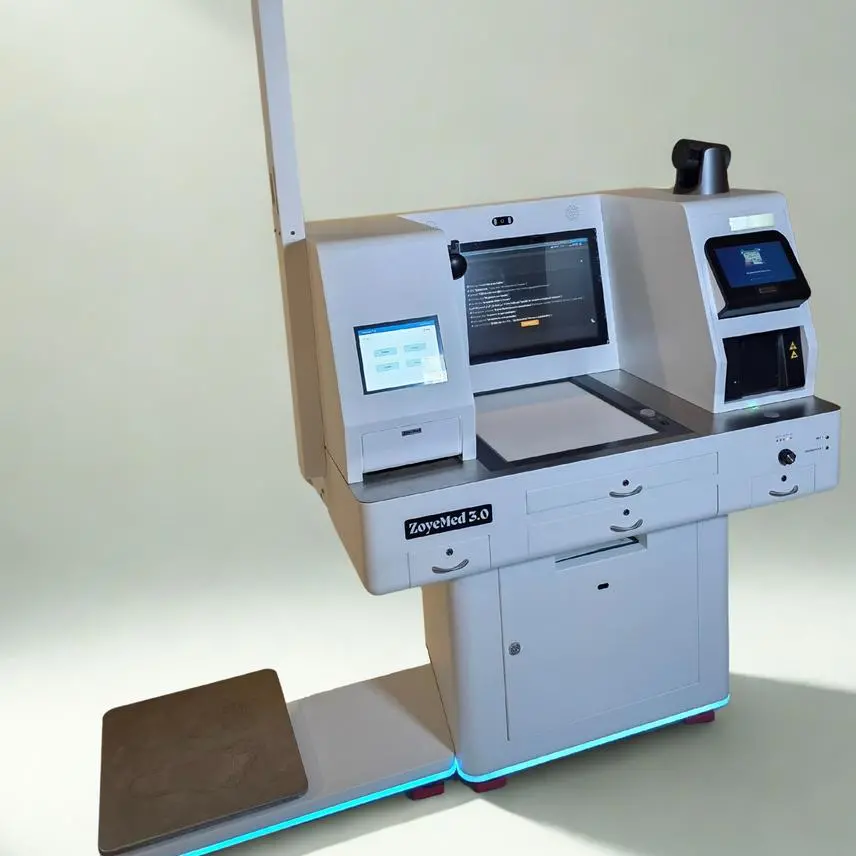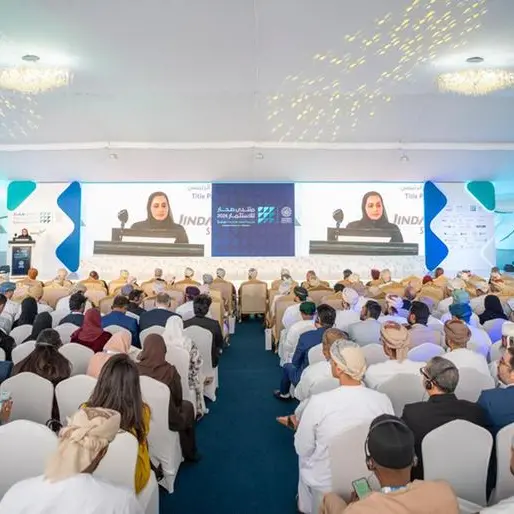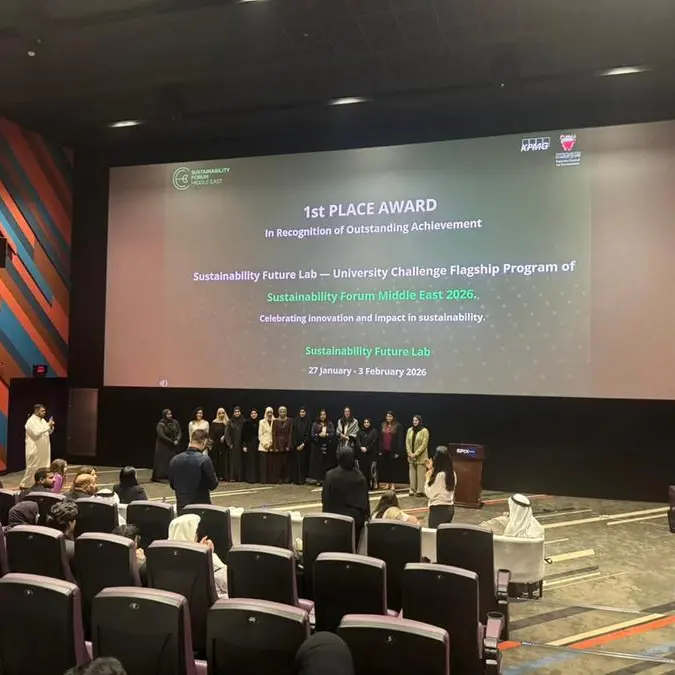- Since 2014, mobile broadband coverage in SIDS has risen from 50 per cent to 90 per cent
- People in SIDS have to pay 4.1-4.5 per cent of their gross monthly income for braodband, considerably higher than the recommended 2 per cent from the Broadband Commission for Sustainable Development
- Experts discuss how ICT technologies can accelerate inclusive and sustainable industrial development in ISDS at the Global Manufacturing and Industrialisation Summit’s Digital Series
Abu Dhabi: The upscaling of digital technologies presents a host of opportunities for Small Island Developing States (SIDS) to diversify their economies, upscale manufacturing, gain greater access to global value chains, improve disaster preparedness, and solve longstanding issues that have caused a strain to their development. However, other significant obstacles remain, including inadequate digital infrastructure, insufficient training opportunities for women and young people, a growing digital divide, and a lack of data and policy knowledge. That’s according to an expert panel convened by the Global Manufacturing and Industrialisation Summit’s Digital Series on the topic: “How Information and Communication Technologies can foster inclusive and sustainable industrial development in Small Island Developing States”.
Ralf Bredel, Chief, Asia-Pacific Regional Programme, UNIDO, said that SIDS share common challenges such as limited resource bases, long distances to primary markets, and vulnerability to climate change. The United Nations Industrial Development Organization (UNIDO) has been implementing various programmes to address such issues, such as technical cooperation on waste management, building resilience to environmental shocks, and industrial policy advice. “We have examples of successful interventions supporting, for example, e-commerce in different Member States, but we would like to devise specific and scalable interventions in SIDS, including regional projects. In fact, ICT has the potential to help SIDS in overcoming some of the challenges derived from the isolation and remoteness, it can support trade in economic diversification. This is even more true, under the current circumstances with Covid-19 and the current restrictions on people's movements and the heavy blow to SIDS’ economies in their continued reliance on tourism,” said Bredel.
Vanessa Gray, Head of the Division for Least Developed Countries (LDCs), Small Island Developing States (SIDS) and Emergency Telecommunications, International Telecommunication Union (ITU), said that increasing access to information and communication technologies (ICTs) can mitigate many issues in SIDS and help to diversify their economies. She added that innovations such as artificial intelligence, blockchain, drones, and mobile money were enabling progress towards sustainable development in SIDS, but this is constrained by a lack of financial, human, and technical resources. To enable advanced digitalisation, Gray proposed a strengthened regulatory environment, greater competition and spectrum to be added for wireless broadband and other digital services, and for improved data gathering capacities. She also advocated for greater digitalisation to mitigate natural disasters, a common threat to SIDS. “We know that small islands are naturally prone to disasters caused by earthquakes and severe weather events and are being affected by climate change, resulting in increased tropical cyclones, hurricanes, flood and landslides, to name a few. Connectivity can help address these events by providing remote communities with access to early warning systems, real-time weather information, remote sensing and geographic information systems,” she stated.
Gary Jackson, Executive Director, Caribbean Centre for Renewable Energy and Energy Efficiency (CCREEE) said that countries in the region are “pushing the envelope” towards energy efficiency. “We have to ensure that we are doing this in a responsible and appropriate way,” he said. “We are working with them on an integrated resource and resilience plan, a 25 to 30-year plan for the electricity sector as it expands to meet the demands and understand the vulnerabilities in the system, and to become more resilient,” stated Jackson. “We have to recognise that islands don’t have what we call a supergrid, don’t have a lot of interconnections that would give us reliability and availability and that’s what people really want,” said Jackson. “So one of the things we have to consider is how we move towards decentralisation, decarbonisation and some of the things that we need to do to ensure that reliability, availability and affordability are consistent with what people require,” he noted.
Jackson identified a number of issues in terms of digitalising public services and infrastructure in the Caribbean, such as cybersecurity, democratisation, urban-rural connections, and hospital services, as well as the issue of maintaining different generators without increasing costs for consumers. He also added that more partnerships are required between industry and academia.
Michelle Marius, Founder and Publisher, ICT Pulse said that informational gaps are a big problem for digitalisation in the Caribbean, as well as insufficient policy attention on structural issues. “You almost have a situation where we’re just dealing with the most urgent matter, which would be the tip of the iceberg, but the major challenges are the bigger issues that you may not necessarily see, are not being given any or are given limited attention,” she said. “And aa a result, what we then have is a hodgepodge of programmes and initiatives that do not necessarily push us forward in any substantial or meaningful way.” She criticised a lack of joined-up thinking at times, such as programmes to provide school children with tablets without addressing home internet costs. Marius also highlighted a continuing gender gap concerning digital employment. “We do have so many girls and women in the workforce. Many of them, sometimes even in management positions in reputable organisations, but somehow we still have not been able to crack that barrier between women in tech and digital entrepreneurship by women” she noted.
Amjad Umar, Director and Professor of ISEM (Information Systems Engineering and Management) program at Harrisburg University of Science and Technology said that the Fourth Industrial Revolution and digitalisation could yield several gains for SIDS, such as more affordable consumer goods through 3D printing, better monitoring of fisheries through artificial intelligence and satellite imaging, and drones for disaster preparedness. He also stressed the need for customisation and specialised training in harnessing digital manufacturing and services in SIDS. “We know that in many cases, SIDS do not have 3G technologies - they are still at 2G range. So, we specifically designed this plan that produces solutions that would work with very, very low technologies. And I totally agree with the previous statement made that you need to have smart people. What we do is in those cases we generate tutorials that can be used to train the people. So digitalisation consists of people, processes and technologies,” underlined Umar.
Concluding, moderator Martin Lugmayr, Sustainable Energy Expert, UNIDO, stressed that there is a long way to go towards realising inclusive and sustainable industrial development in SIDS, particularly in light of current circumstances. “Covid-19 recovery must have a long term perspective, it has to be green, it has to be blue in the case of Small Island Developing States, and it has to be digital,” he said.
The virtual panel discussion was the latest in a new sequence of weekly sessions held by the Global Manufacturing and Industrialisation Summit’s Digital Series, following the Virtual Summit that was held in September 2020. The session is available to watch on-demand at https://bit.ly/2YHVHyY.
-Ends-
Media Collateral
- Press collateral (press release, imagery, links, etc.) is available to download on the following link: https://bit.ly/2LpNvzp
- The full session and video/audio clips are available upon request
- Additional GMIS press assets are available here: https://bit.ly/31s6aQN
About GMIS:
The Global Manufacturing and Industrialisation Summit (GMIS) was established in 2015 to build bridges between manufacturers, governments and NGOs, technologists, and investors in harnessing the Fourth Industrial Revolution’s (4IR) transformation of manufacturing to enable the regeneration of the global economy. A joint initiative by the United Arab Emirates and the United Nations Industrial Development Organization (UNIDO), GMIS is a global platform that presents stakeholders with an opportunity to shape the future of the manufacturing sector and contribute towards global good by advancing some of the United Nations Sustainable Development Goals.
The first two editions of the Global Manufacturing and Industrialisation Summit were held in Abu Dhabi, United Arab Emirates in March 2017, and Yekaterinburg, Russia in July 2019, respectively, with each edition welcoming over 3,000 high-level delegates from over 40 countries.
GMIS 2020, the third edition of the Global Manufacturing and Industrialisation Summit, was held virtually as a sequence of digital series starting June 2020 followed by a virtual Summit in September 2020, and focused on glocalisation.
To learn more about GMIS, please visit https://gmisummit.com/ and follow GMIS on Twitter: @GMISummit, Instagram: @gmisummit, LinkedIn: GMIS - Global Manufacturing & Industrialisation Summit, and Facebook: @GMISummit.
Press Contact:
Reethu Thachil
Communications Manager
M Three Marcomms LLC, Press Office for:
Global Manufacturing & Industrialisation Summit
Mohammed Bin Rashid Initiative for Global Prosperity
reethu@m3media.com
© Press Release 2021
Disclaimer: The contents of this press release was provided from an external third party provider. This website is not responsible for, and does not control, such external content. This content is provided on an “as is” and “as available” basis and has not been edited in any way. Neither this website nor our affiliates guarantee the accuracy of or endorse the views or opinions expressed in this press release.
The press release is provided for informational purposes only. The content does not provide tax, legal or investment advice or opinion regarding the suitability, value or profitability of any particular security, portfolio or investment strategy. Neither this website nor our affiliates shall be liable for any errors or inaccuracies in the content, or for any actions taken by you in reliance thereon. You expressly agree that your use of the information within this article is at your sole risk.
To the fullest extent permitted by applicable law, this website, its parent company, its subsidiaries, its affiliates and the respective shareholders, directors, officers, employees, agents, advertisers, content providers and licensors will not be liable (jointly or severally) to you for any direct, indirect, consequential, special, incidental, punitive or exemplary damages, including without limitation, lost profits, lost savings and lost revenues, whether in negligence, tort, contract or any other theory of liability, even if the parties have been advised of the possibility or could have foreseen any such damages.



















